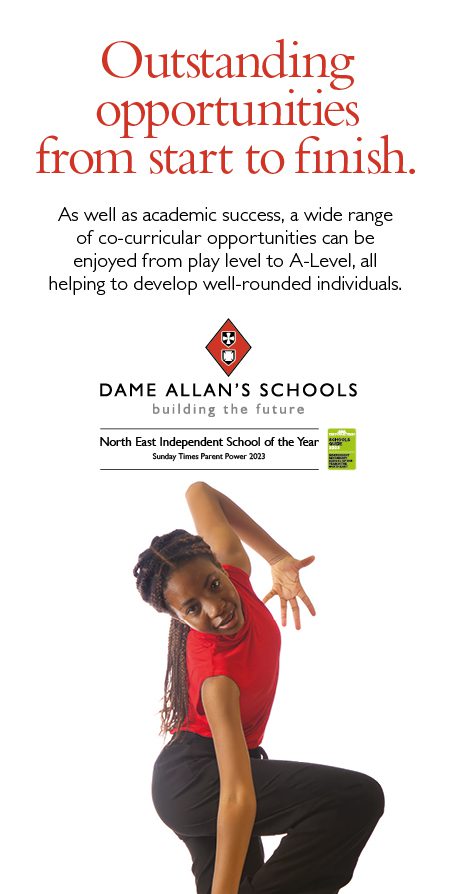By Geoffrey Stanford, Headmaster, Royal Grammar School, Newcastle
In the 2024 Autumn Budget, the Chancellor announced the introduction of VAT on independent school fees, to be implemented from 1st January 2025.
This controversial decision has sparked passionate debate (and several legal challenges) within the education sector at a local, national and international level.
Before I share my perspective, I want to highlight and remind readers what is at the heart of this ongoing debate: children, their futures and their parents’ right to choose their school; not financial forecasts or politicians. This is about encouraging a spectrum of different types of schools that meet the needs of different children, enabling all young people to fulfil their potential.
Over the past few months, I have observed the severe lack of meaningful dialogue or consultation about the principle of taxing education. Despite the Government’s repeated assertions, there is no firm link between VAT on independent school fees and state school funding. Whatever your opinion on taxing education, our MPs must now ensure that the tax raised here in the North East is reinvested back into the region to deliver new teachers, improved facilities, and greater opportunities for state school students. We cannot, as a region, as teachers and as parents, face this uncertain future without some tangible gain for our young people. I expect that North East MPs from across the region, whose constituents include RGS families, will have had little choice but to vote in favour of the 20 per cent VAT on independent school fees due to the whip. I also hope that despite the vote, our politicians, in their heart of hearts, want the Royal Grammar School Newcastle to remain inclusive and as socially diverse as we are proud to be today.
We have, and always will, strive to ensure that our fees are accessible to those families who choose to, despite the sacrifices, educate their children at no cost to the taxpayer. That is why we have decided to share with all current parents the burden of the extra cost for the upcoming Spring and Summer terms of 2025; in effect the school is absorbing 12 per cent of the additional costs next year. As a 500 year old school, we are confident that RGS is financially robust and we can weather the challenges.
However, across the independent education sector as a whole, the reality of VAT is that, ultimately, the number of students will shrink, threatening the viability of some independent schools, at a time when the region has limited state school capacity.
Now, more than ever, our state schools need support in the face of increased demand while dealing with acute systemic issues including poverty and health inequality. As a Trustee for a Multi-Academy Trust, I am under no illusion about how tough things are for our state sector colleagues. I believe it takes a city to educate its children, which is reflected in our partnership work. Each year, RGS runs 50 projects in over 100 schools, engaging with more than 10,000 students and 700 teachers. While, thanks to our amazing RGS Bursary donors, we are changing the lives of 90 exceptional students who come to the RGS, our partnerships programme aims to change the lives of many more students across the North East.
Much of our partnership work revolves around STEM as a result of both RGS’ reputation and access to funding streams. However, music, art and sport are also vital areas that the Government wants to develop. The creative and sports projects in our partnerships programme have also had significant impact. We stand ready to scale-up and replicate this work more widely if the local Government wants to engage with the support we offer to feed into the regional educational landscape.
While public perception of what an independent school consists of is primarily based on the stereotype of a few big names, the reality is that nearly half of the independent schools have fewer than 100 students. Many are faith schools or focus on special needs or performing arts. At a national level over the past year, public understanding and appreciation of the impact of their local independent school has increased enormously. Enabling tax-paying families to choose an independent education at no cost to government never was and is still not the problem. It can and should be part of the solution.
www.rgs.newcastle.sch.uk

